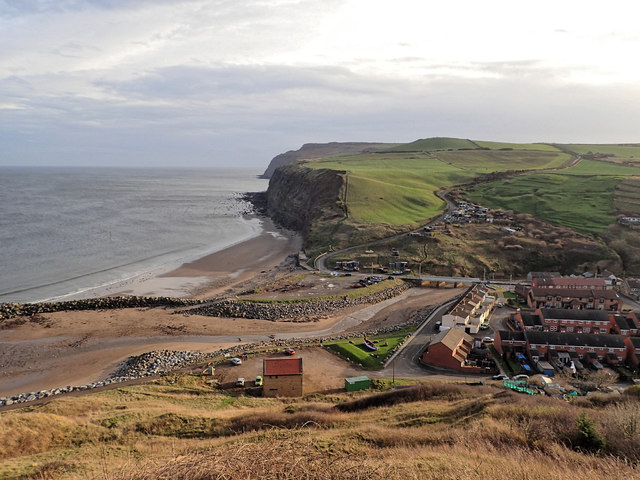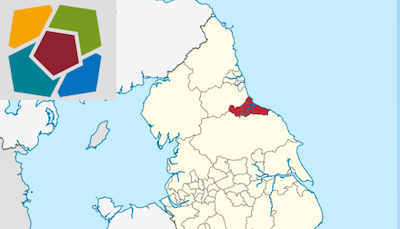Skinningrove

-
Description
"Skinningrove is a down to earth, industrialised village in a steep sided valley on the Yorkshire Coast. The name is derived from old Scandinavian: skinnari means a tanner and gryfa means a steep sided wooded valley. A tannery was recorded there in the 13th century. By 1614 ‘jeators’ were collecting jet on the beach, probably for sale to carvers in Whitby. But by the mid 19th century industry was set to accelerate. 1840 saw the discovery of the main ironstone seam. Extraction began soon after, exporting the ore to the Bolchow & Vaughan Iron Works at Witton Park in County Durham. In 1874 Skinningrove had a pair of its own blast furnaces filling the air with smoke and sulphurous fumes. The slope on which I am standing is made entirely of slag which was dumped still hot and smoking over the cliff. Nowadays fulmars nest on the slag cliffs. On the cliffs in the distance on the sites of major alum production which gave off its own particular smells and fumes. The mine closed in 1958; it is now a museum devoted to the ironstone industry. The blast furnaces have long closed replaced by a rolling mill which is still working. In 1973 Kilton Beck which flows down the valley ran bright orange with minerals from the ironstone workings. One of my first jobs when I moved to North Yorkshire as a rookie quantity surveyor was on the civil engineering plant to filter and clean up the beck. They had to have a second attempt a few years back but I read now that salmon and sea trout have returned to the beck." Photo by Mick Garratt, 2015, and licensed for reuse under a Creative Commons Licence. -
Owner
Geograph.org.uk -
Source
Geograph (Geograph) -
License
What does this mean? Attribution-ShareAlike 2.0 Generic (CC BY-SA 2.0)
-
Further information
Link: http://www.geograph.org.uk/photo/4762224
Resource type: Text/Website
Added by: Simon Cotterill
Last modified: 9 years, 9 months ago
Viewed: 1140 times
Picture Taken: Unknown -
Co-Curate tags







